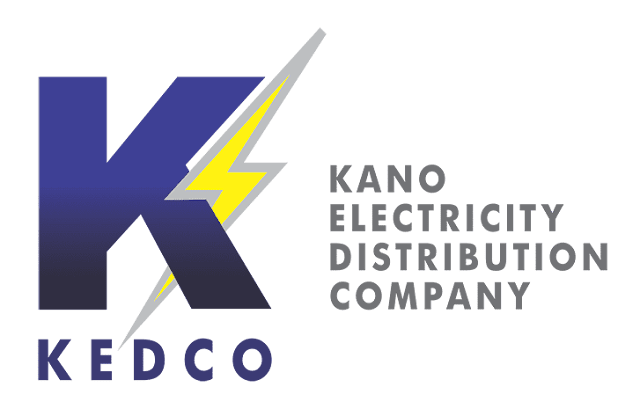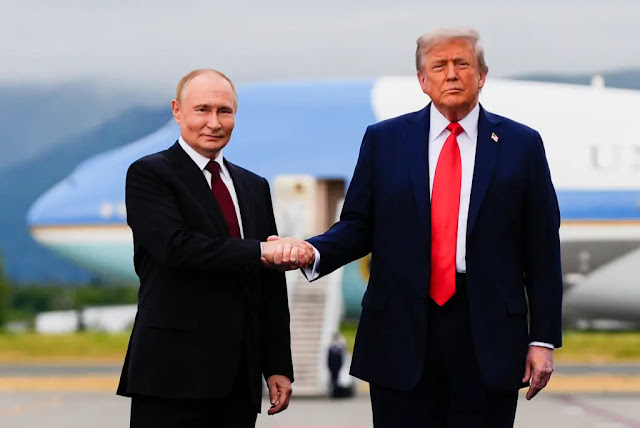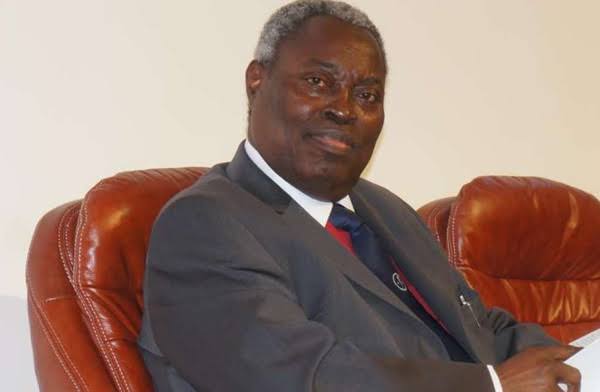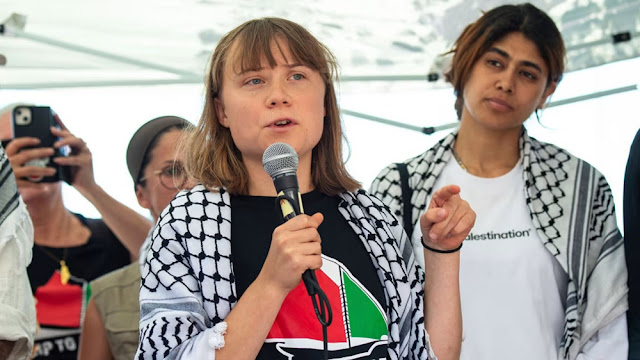In a landmark move toward sustainable energy and economic progress, the Jigawa State Government has commissioned a ₦1.2 billion solar mini-grid project in Kafin Hausa, Ethiope-East Local Government Area, aimed at expanding access to clean, reliable, and affordable electricity. The commissioning, which took place over the weekend of August 30–31, 2025, marks Jigawa as one of the first states in Northern Nigeria to generate its own electricity, setting a precedent for renewable energy adoption in the region. Spearheaded by the Future Energies Africa (FEA) and Kano Electricity Distribution Company (KEDCO) through their renewable energy subsidiary, Bagaja Renewables Limited, the project is poised to transform the energy landscape in Kafin Hausa and serve as a model for other underserved communities across Nigeria.
The initiative, known as the FEA/KEDCO Solar Mini-Grid Project, is designed to strengthen electricity supply by powering 10 major distribution transformers in key locations, including the NEPA Office, Kofar Fada, Akarami, Bakin Kasuwa, and Ashura. With a 500kWp solar-hybrid generation system, a 10MWp output capacity, and supporting infrastructure such as a 350MVA backup diesel generator and a 3.5km 33kV distribution line, the project promises to reduce reliance on diesel generators, enhance energy reliability for households and businesses, and boost industrial productivity. Governor Umar Namadi, who officiated the commissioning, hailed the project as a catalyst for opportunity, progress, and prosperity, aligning with Jigawa’s vision for inclusive and sustainable development.
This article delves into the details of the project, its significance for Jigawa State, the broader implications for Nigeria’s energy transition, and the collaborative efforts that made this milestone possible. It also explores the state’s ongoing commitment to electricity reforms and the potential for this initiative to serve as a blueprint for renewable energy development in Northern Nigeria.
The FEA/KEDCO Solar Mini-Grid Project: A Technical Marvel
The FEA/KEDCO Solar Mini-Grid Project in Kafin Hausa represents a significant leap forward in addressing Nigeria’s chronic electricity challenges, particularly in rural and semi-urban areas. The project is a hybrid system that combines solar power with a backup diesel generator, ensuring a consistent and reliable energy supply. Its key components include:
500kWp Solar-Hybrid Generation System: The core of the project, this system harnesses solar energy to produce electricity, reducing the environmental and financial costs associated with fossil fuel-based power generation.
10MWp Output Capacity: This capacity ensures the project can meet the energy demands of households, businesses, and public institutions in Kafin Hausa.
350MVA Backup Diesel Generator: The generator serves as a fail-safe, providing power during periods of low solar generation, such as at night or during cloudy weather.
3.5km 33kV Distribution Line: This infrastructure connects the mini-grid to 10 major distribution transformers, ensuring efficient power delivery to key locations in Kafin Hausa, including the NEPA Office, Kofar Fada, Akarami, Bakin Kasuwa, and Ashura.
500kV Step-Up and Step-Down Transformers: These transformers optimize voltage levels for distribution, enhancing the system’s efficiency and reliability.
The project’s innovative design addresses the unique challenges of electricity supply in Northern Nigeria, where unreliable power and limited grid access have long hindered economic development. By integrating renewable and conventional energy sources, the mini-grid ensures a stable power supply while minimizing environmental impact. KEDCO has noted that the initiative will significantly reduce reliance on diesel generators, which are costly and environmentally harmful, thereby lowering energy costs for consumers and boosting industrial productivity.
The project was developed by Future Energies Africa (FEA), a core investor in KEDCO, through its renewable energy subsidiary, Bagaja Renewables Limited. This partnership underscores the importance of public-private collaboration in addressing Nigeria’s energy challenges and highlights Jigawa’s proactive approach to leveraging private sector expertise for public good.
Commissioning Ceremony: A Vision for Progress
The commissioning ceremony, held in Kafin Hausa, was a moment of celebration and reflection for the people of Jigawa State. Governor Umar Namadi, who officiated the event, described the project as a transformative milestone in the state’s development agenda. In his address, the governor emphasized that the commissioning was not merely the activation of a power grid but “the ignition of opportunity, progress, and prosperity for the people of Kafin Hausa.” He praised FEA and KEDCO for their technical expertise, foresight, and commitment to Jigawa’s growth, noting that the project aligns with the state’s mission to deliver inclusive and sustainable development.
“Access to affordable and sustainable energy is central to driving job creation, industrialization, and poverty reduction in Jigawa State,” Governor Namadi said. “This project demonstrates what is possible when we champion partnerships for clean energy in our rural communities. We are proud to lead the way in Northern Nigeria and set a model for others to follow.”
The governor’s remarks highlighted the broader socioeconomic benefits of the project. By providing reliable electricity to households, businesses, and public institutions, the mini-grid is expected to stimulate economic activity, improve living standards, and create new opportunities for entrepreneurship. For instance, small businesses in Kafin Hausa, such as tailoring shops, food processing units, and retail stores, will benefit from consistent power, enabling them to operate more efficiently and expand their operations. Similarly, schools and healthcare facilities will have access to reliable electricity, improving service delivery and quality of life.
Representatives from FEA and KEDCO also spoke at the event, reaffirming their commitment to expanding renewable energy investments in Jigawa and other underserved communities in Northern Nigeria. Ahmad Zakari, FEA’s representative, highlighted the project’s innovative mix of solar and diesel power, noting that it sets a new benchmark for electrification in Nigeria. “This hybrid solar system ensures consistent clean power supply to Jigawa’s urban centers, demonstrating the potential of renewable energy to transform lives,” Zakari said. He pledged that FEA and KEDCO would continue to collaborate with the Jigawa State Government to bring similar projects to other parts of the state.
Jigawa’s Commitment to Electricity Reforms
The commissioning of the Kafin Hausa solar mini-grid is part of Jigawa State’s broader strategy to reform its electricity sector and promote sustainable energy solutions. In December 2024, Governor Namadi signed the Jigawa State Electricity Regulatory Commission Law, a landmark piece of legislation aimed at enhancing power regulation and access across the state. The law establishes a framework for overseeing electricity generation, distribution, and consumption, ensuring transparency, efficiency, and accountability in the sector.
Earlier in 2024, the state government created the Ministry of Power and Renewable Energy, a dedicated institution tasked with driving inclusive and reliable energy solutions. The ministry has been instrumental in coordinating projects like the Kafin Hausa mini-grid and fostering partnerships with private sector players like FEA and KEDCO. These reforms reflect Jigawa’s proactive approach to addressing Nigeria’s energy challenges and position the state as a leader in the transition to renewable energy.
Jigawa’s efforts align with Nigeria’s broader Energy Transition Plan (ETP), which targets 30 percent renewable energy generation by 2030. The federal government has also prioritized renewable energy, allocating ₦100 billion in the 2025 budget for solar mini-grids in public institutions as part of the National Public Sector Solarisation Initiative. Jigawa’s Kafin Hausa project serves as a practical example of how state governments can contribute to these national goals while addressing local needs.
Impact on Kafin Hausa and Beyond
The Kafin Hausa solar mini-grid is expected to have a transformative impact on the local community and the wider Jigawa State. By powering 10 major distribution transformers, the project will provide electricity to critical infrastructure, including markets, government offices, and residential areas. This enhanced access to power is likely to drive economic growth in several ways:
Boosting Small Businesses: Reliable electricity will enable small and medium enterprises (SMEs) in Kafin Hausa to operate more efficiently, reducing reliance on expensive diesel generators. For example, market traders at Bakin Kasuwa will benefit from consistent power for lighting and refrigeration, improving their ability to store and sell goods.
Enhancing Education and Healthcare: Schools and health facilities in Kafin Hausa will have access to uninterrupted power, enabling the use of modern equipment and improving service delivery. This is particularly significant for rural communities, where power outages often disrupt essential services.
Promoting Industrial Productivity: The project’s 10MWp output capacity will support industrial activities, such as agro-processing and manufacturing, creating jobs and stimulating economic growth.
Reducing Environmental Impact: By prioritizing solar energy, the project reduces carbon emissions and reliance on fossil fuels, contributing to environmental sustainability.
The project also has broader implications for Northern Nigeria, a region that has historically lagged behind in electricity access. According to the World Bank, only about 30 percent of rural households in Northern Nigeria have access to electricity, compared to 60 percent in urban areas. Initiatives like the Kafin Hausa mini-grid demonstrate the potential of decentralized renewable energy systems to bridge this gap, particularly in underserved communities.
Challenges and Opportunities
While the Kafin Hausa project is a significant achievement, it is not without challenges. The high initial cost of renewable energy infrastructure, such as solar panels and distribution lines, remains a barrier to scaling similar projects across Jigawa and Northern Nigeria. The state government and its partners will need to secure additional funding and explore innovative financing models, such as public-private partnerships and international grants, to expand the initiative.
Another challenge is the need for community engagement and capacity building. Residents of Kafin Hausa will require training on how to maintain and utilize the mini-grid effectively, ensuring its long-term sustainability. Additionally, the state government must address potential issues related to grid integration, as the mini-grid operates alongside the national grid managed by KEDCO.
Despite these challenges, the project presents numerous opportunities. It serves as a proof of concept for other states in Northern Nigeria, demonstrating that renewable energy can be a viable solution to electricity challenges. The success of the Kafin Hausa mini-grid could attract further investments from private sector players and international development partners, accelerating the region’s energy transition.
National and Regional Context
The commissioning of the Kafin Hausa solar mini-grid comes at a critical time for Nigeria’s energy sector. The country faces persistent challenges, including an unreliable national grid, frequent power outages, and a heavy reliance on diesel generators. According to the Nigerian Electricity Regulatory Commission (NERC), Nigeria’s installed electricity generation capacity is approximately 13,000 MW, but actual output is often less than 5,000 MW due to inefficiencies and infrastructure challenges.
The federal government’s Energy Transition Plan (ETP) aims to address these issues by promoting renewable energy and decentralized power systems. The allocation of ₦100 billion in the 2025 budget for solar mini-grids in public institutions reflects this commitment. Jigawa’s proactive approach positions it as a leader in this transition, demonstrating how state-level initiatives can complement national efforts.
The project also aligns with global trends toward renewable energy adoption. The International Energy Agency (IEA) estimates that solar power will account for a significant portion of global electricity generation by 2030, driven by declining costs and increasing demand for clean energy. By investing in solar mini-grids, Jigawa is not only addressing local needs but also contributing to global sustainability goals.
Community and Stakeholder Reactions
The commissioning of the Kafin Hausa mini-grid has been met with widespread approval from residents, community leaders, and stakeholders. Local business owners in Kafin Hausa expressed optimism about the project’s potential to reduce operating costs and improve productivity. “This is a game-changer for us,” said a trader at Bakin Kasuwa. “With reliable electricity, we can keep our shops open longer and serve our customers better.”
Community leaders have also praised the state government’s commitment to rural electrification. The traditional ruler of Kafin Hausa, who attended the commissioning, described the project as a “blessing” for the community and urged residents to protect the infrastructure from vandalism. He also called for continued collaboration between the government, private sector, and community members to ensure the project’s success.
Representatives from FEA and KEDCO emphasized their long-term commitment to Jigawa’s energy sector. Ahmad Zakari, speaking on behalf of FEA, noted that the Kafin Hausa project is just the beginning of a broader effort to bring renewable energy to underserved communities across Northern Nigeria. “We see Jigawa as a model for what is possible when governments and private companies work together,” he said.
The Path Forward
As Jigawa State celebrates the commissioning of the Kafin Hausa solar mini-grid, the focus now shifts to ensuring its sustainability and replicating its success in other parts of the state. The government has outlined plans to expand renewable energy projects to additional local government areas, with a focus on rural communities that lack access to the national grid. The Ministry of Power and Renewable Energy will play a central role in coordinating these efforts, working closely with partners like FEA and KEDCO.
The state government is also exploring ways to integrate the mini-grid with other development initiatives, such as agricultural mechanization and industrial clusters. By linking reliable electricity to these sectors, Jigawa aims to create a multiplier effect that drives economic growth and reduces poverty.
For the people of Kafin Hausa, the project represents a beacon of hope and a step toward a brighter future. As electricity lights up homes, businesses, and public spaces, the community is poised to reap the benefits of progress and opportunity. The success of this initiative underscores the transformative power of renewable energy and the importance of visionary leadership in addressing Nigeria’s energy challenges.
Conclusion
The commissioning of the ₦1.2 billion FEA/KEDCO Solar Mini-Grid Project in Kafin Hausa is a historic milestone for Jigawa State and a testament to the power of public-private partnerships in driving sustainable development. By providing clean, reliable electricity to households, businesses, and public institutions, the project is set to transform lives in Kafin Hausa and serve as a model for other states in Northern Nigeria. Governor Umar Namadi’s leadership, combined with the expertise of FEA and KEDCO, has positioned Jigawa as a pioneer in renewable energy adoption. As Nigeria moves toward its 2030 renewable energy goals, initiatives like the Kafin Hausa mini-grid highlight the potential for state-led efforts to bridge the energy access gap and foster inclusive growth. The project is not just about powering homes—it is about igniting hope, opportunity, and prosperity for the people of Jigawa State.






